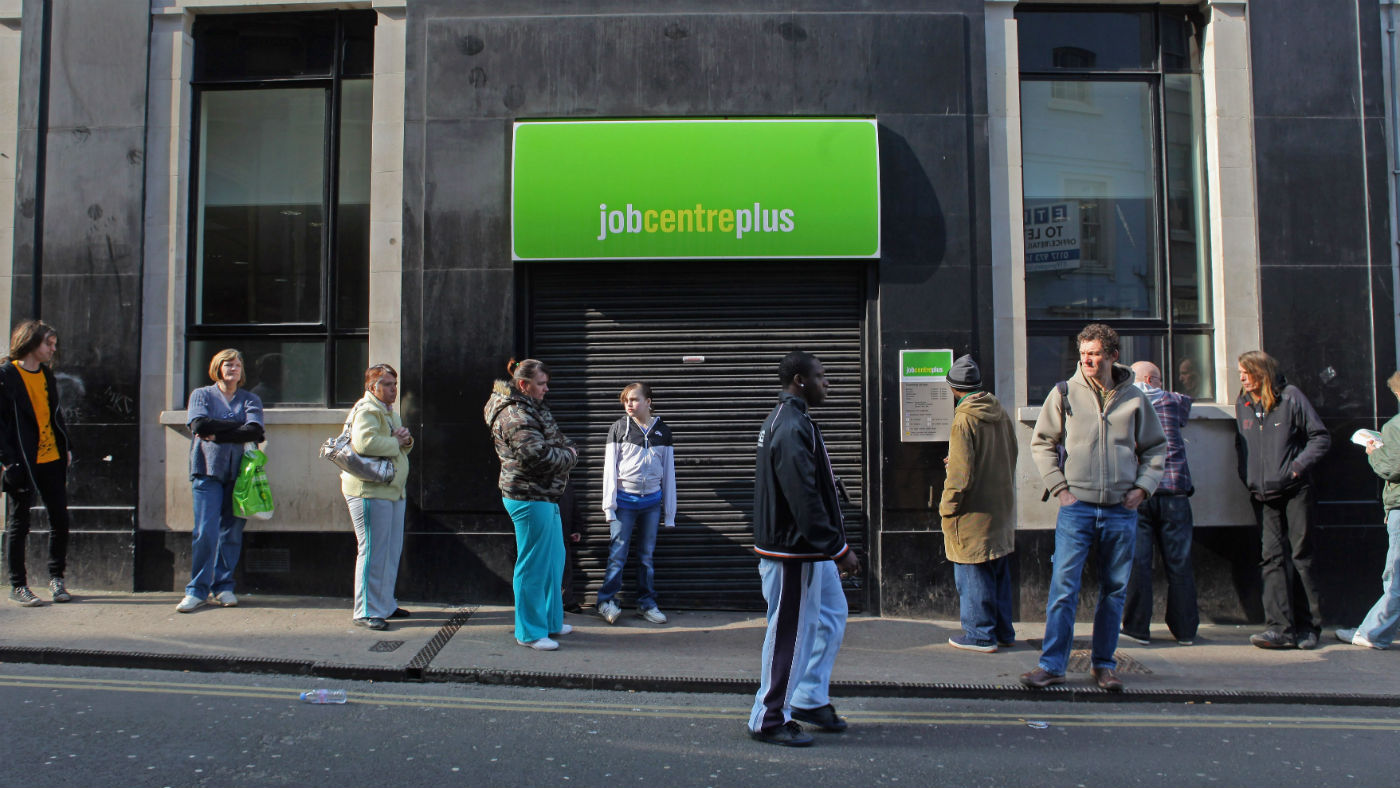Universal Credit roll-out delayed
Vote to extend government’s flagship welfare programme to three million new claimants has been pushed back

A free daily email with the biggest news stories of the day – and the best features from TheWeek.com
You are now subscribed
Your newsletter sign-up was successful
The roll-out of Universal Credit to three million new benefit claimants is to be postponed, after the government announced it was pushing back a vote on its flagship welfare programme.
MPs were due to vote on whether to extend the controversial scheme in the next few weeks, but now Work and Pensions Secretary Amber Rudd will seek approval for just 10,000 people to be moved on to the new benefits system this summer.
The government has, however, reiterated that all seven million claimants will be on universal credit by 2023 as planned.
The Week
Escape your echo chamber. Get the facts behind the news, plus analysis from multiple perspectives.

Sign up for The Week's Free Newsletters
From our morning news briefing to a weekly Good News Newsletter, get the best of The Week delivered directly to your inbox.
From our morning news briefing to a weekly Good News Newsletter, get the best of The Week delivered directly to your inbox.
News of the last-minute delay was first reported by The Observer, which said “the move is expected to be part of a major rethink designed to quell concerns about the programme’s roll-out and avoid a damaging Tory rebellion”.
Universal Credit rolls six existing working-age benefits – employment support allowance, income support, income-based jobseekers’ allowance, housing benefit, working tax credit and child tax credit – into one monthly payment.
Supporters of the scheme say it saves money and helps simplify the old complicated benefits system.
Yet it has been beset by technical problems, is over budget and more than six years behind schedule. Critics claim it has made 3.2 million households worse off, with reports it has forced many into debt, left others relying on food banks and even pushed some into prostitution.
A free daily email with the biggest news stories of the day – and the best features from TheWeek.com
Since replacing Esther McVey in November, Rudd has signalled that she wants to ease the impact of the rollout and demand more money from the Treasury for the system.
The Times says “many of the problems with the Tories’ flagship programme are blamed on the decision to cut £3 billion a year from its budget. That meant claimants were able to keep less of the cash they earn from work.”
In October’s budget, Chancellor Philip Hammond pledged to pump £1.7 billion into higher payments that will ease the pain for 200,000 workers, although “significantly” says The Independent, this means universal credit “will now cost more than the benefits system it replaces”.
The decision to delay the roll-out has been welcomed by Frank Field, the chairman of the work and pensions select committee, which has repeatedly warned that universal credit is pushing people into destitution.
“The government seems finally to have woken up to the human catastrophe that was waiting to happen under its ill-formed plans for moving people onto universal credit,” he said.
The Sun reports that “allies of the work and pensions secretary insisted the decision to overhaul the migration was not due to fear of a Tory revolt but because it was the right way to handle the change”.
However, “the concession is unlikely to appease Labour, which has demanded a complete overhaul and hinted it would scrap universal credit altogether”, says the Independent.
-
 The Olympic timekeepers keeping the Games on track
The Olympic timekeepers keeping the Games on trackUnder the Radar Swiss watchmaking giant Omega has been at the finish line of every Olympic Games for nearly 100 years
-
 Will increasing tensions with Iran boil over into war?
Will increasing tensions with Iran boil over into war?Today’s Big Question President Donald Trump has recently been threatening the country
-
 Corruption: The spy sheikh and the president
Corruption: The spy sheikh and the presidentFeature Trump is at the center of another scandal
-
 Home Office worker accused of spiking mistress’s drink with abortion drug
Home Office worker accused of spiking mistress’s drink with abortion drugSpeed Read Darren Burke had failed to convince his girlfriend to terminate pregnancy
-
 In hock to Moscow: exploring Germany’s woeful energy policy
In hock to Moscow: exploring Germany’s woeful energy policySpeed Read Don’t expect Berlin to wean itself off Russian gas any time soon
-
 Were Covid restrictions dropped too soon?
Were Covid restrictions dropped too soon?Speed Read ‘Living with Covid’ is already proving problematic – just look at the travel chaos this week
-
 Inclusive Britain: a new strategy for tackling racism in the UK
Inclusive Britain: a new strategy for tackling racism in the UKSpeed Read Government has revealed action plan setting out 74 steps that ministers will take
-
 Sandy Hook families vs. Remington: a small victory over the gunmakers
Sandy Hook families vs. Remington: a small victory over the gunmakersSpeed Read Last week the families settled a lawsuit for $73m against the manufacturer
-
 Farmers vs. walkers: the battle over ‘Britain’s green and pleasant land’
Farmers vs. walkers: the battle over ‘Britain’s green and pleasant land’Speed Read Updated Countryside Code tells farmers: ‘be nice, say hello, share the space’
-
 Motherhood: why are we putting it off?
Motherhood: why are we putting it off?Speed Read Stats show around 50% of women in England and Wales now don’t have children by 30
-
 Anti-Semitism in America: a case of double standards?
Anti-Semitism in America: a case of double standards?Speed Read Officials were strikingly reluctant to link Texas synagogue attack to anti-Semitism